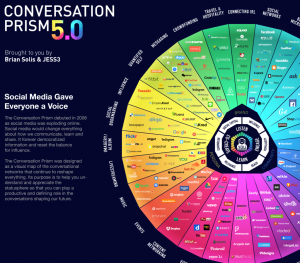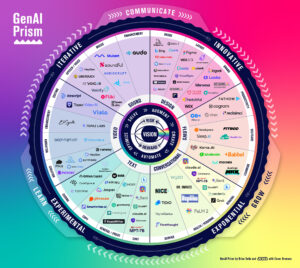You’ve all heard the stat, if Facebook were a country, it would be the the third largest in the world. That stat was initially shared when Facebook hit 500 million users. Now the site has more than 800 million users and a new comparison that’s worthy of blog posts, tweets and conference presentations…Facebook now has as many users as the entire Internet did in 2004, which ironically is the year Facebook debuted.
According to data released by Pingdom, Facebook is also larger than the population of Europe, with Russia included. But when it comes to comparing Facebook’s population with worldwide users of the Internet in general, you can see that it ranks only second behind Asia. At 800 million, Facebook represents 28% of the current Internet population and 168% and 294% of the Internet population of Europe and North America respectively.

Pingdom also compared Facebook’s global citizenry with the actual populations of countries around the world (not just Internet users). Here you can see that Facebook’s active user base is 2.5x the population of the United States, 3.9x the population of Brazil, and 13x the population of the United Kingdom. Only India and China have populations larger than Facebook.

In the face, pun intended, of an important migration from that of a destination web to that of a social egosystem, businesses must rethink their web strategy. No longer is having a centralized www presence enough to satisfy the needs of online consumers. I’ve long maintained that businesses must augment their traditional web site with that of a social home page as well as a mobile experience. Catering to attention where it is focused is the only way to earn relevance in a new era of social consumerism. In doing so, businesses must also adopt a new mindset that doesn’t simply market to consumers the same old way just in new networks, but instead foster meaningful engagement and connections by providing value…as defined by the very consumers you’re trying to reach.
This is your time to not only earn Likes, but also make them count now and in the long term.
Connect with Brian Solis on Twitter | LinkedIn | Facebook | Google+ | BrianSolisTV
___
The End of Business as Usual: Rewire the way you work to succeed in the consumer revolution
Order now at Amazon | Barnes and Noble | 800CEOREAD
___
ENGAGE!: The complete guide for businesses to build and measure success on the social web

___
Click here for your favorite infographics…now in 22 x 28 poster format!







Brian,
Thanks for collecting these stats – they are very interesting.
However, there is one major difference between Facebook and the Internet: ownership. Facebook is a private network with owners who set rules (often changed without consultation or particular care for their users), the internet is a public network with no rules or ownership.
The backlash against Facebook is growing together with its size and power – do you really want to be associated with it as your users are leaving it in droves due to their excessive owner’s-right-to-control?
I think that beyond the fact that brands must be aware that Facebook exists, it is not a good idea to put your brand under the control of a third-party with which you have no rights (read the TOS) or recourse.
Just a thought.
..Not to mention that Mark Zuckerberg is not to be trusted.
I beg to differ, one could say that the internet is owned, controlled and has rules. Google. If a business has a web presence and doesn’t play by the rules and optimize their internet presence to appear in Google searches (or other SEs attempting to mimic Google’s algorithm), the most widely used (and trusted, right or wrong) search in the world, they might as well not bother. I don’t think Brian, or any other SM strategist I have ever encountered is suggesting to base one’s entire web presence and business strategy on FB, that would be the proverbial eggs in one basket. They are, however, stating the fact that a business these days CANNOT legitimately compete or survive by ignoring the fact that people use SM and it’s here to stay and the biggest player out there is FB. And just like Google has changed the rules over time — by admittedly actively excluding content it does not want, like FB, from its prior “unbiased” search results — it is also a free service and therefore we either live with it or not. Use another SE if you want, but if you don’t at least check Google’s results you are not doing due diligence in your research. And for heaven’s sake, keep an offline copy of everything you ever post on FB or anywhere else so you don’t lose it forever if something goes wrong. I have heard horror stories that could/should have been avoided…
John,
You can use the internet without Google, it is not that hard. Actually, Google is not the internet (as hard as it may be for some people to acknowledge). Further, in 2004 Yahoo was “the owner” of the internet pretty much like Google is today (or thereabouts, I believe their decline had already started by then, but you get the point).
I did not say not to use Facebook, I almost did, I said consider who you are associating with. If you want to protect your brand (or pretend that you can) by engaging in Facebook, is that an association you want your customers to make on your behalf? It did backfire for Toyota and a few others in the days of Second Life (the short-lived Google) and for others in MySpace. It will backfire for brands on Facebook.
Be careful of where you set camp it not, AFAI can tell, bad advice. Businesses can indeed compete and win without being in Facebook and Twitter. If you have a solid business, know your customers, and do well by them you don’t need to be in either. There are plenty of examples, as there were before when new channels emerge (let’s not forget, at the end of the day we are just talking new channels, nothing more) and will be in the future when we implant ESP chips in our brains (or whatever we do next). Channels don’t change the business behavior at the core, regardless of what innovative model of interaction they bring with it. Saying be careful where you put your business by association is not, as far as I can tell, bad advice just like it was 15 years ago when the Internet started to make its way into the enterprise.
Google was there before Facebook, will be there when Facebook is gone. It does not set the rules for Facebook, Mark and his executives can screw that up on their own quite well.
FB issues like privacy, senior management immaturity, policy changes and now size = Yogi Berra line ” that place is so busy no one goes there anymore” it’s early but lots of evolution still in works – good to know it is evolving relatively fast…
FB issues like privacy, senior management immaturity, policy changes and now size = Yogi Berra line ” that place is so busy no one goes there anymore” it’s early but lots of evolution still in works – good to know it is evolving relatively fast…
Asia is Huge!
Passion makes the difference
Asia is Huge!
Passion makes the difference
Hi Brian,
Which social media site works best for you regarding engagement?
One thing I’ve noticed is that Twitter users – or at least those I interact with – tend to be more proactive is sharing, whereas with Facebook they’re most passive.
Dan Zarella will probably prove me wrong but that’s another story 🙂
Ivan
Well it’s very good to know that the growth of Facebook in 2011 was Whole Internet Size in 2004.
WOW!! Man it’s totally incredible information. I mean the
way Facebook is leading upcoming time its users will be ahead of Asia population too. It’s good because of Facebook now we
can connect with people all over the world in one place. Great work buddy!
Thanks
last couple of years Facebook bring more and more. today, all over world 6 people are active on facebook out of 10. facebook is leading social networking site. in nearest future no one can take over the facebook.
The growth of Facebook has certainly been phenomenal to say the least. While other networks like Myspace have come and gone, Facebook seems to getting stronger and stronger every years irrespective of the global economic meltdown. I wonder why India is not present in the above chart??
I miss the Netherlands in the last picture about ‘The facebook user base vs. country populations… 🙁
I think it would be interesting to look at some statistics about who Facebook users are. How many Facebook users don’t own a computer? How many of those access Facebook from their phone? How many access it from someone else’s computer? How many Facebook users have a Facebook account but don’t have email (I have a lot of these in the students I teach)? I have a feeling we might be surprised about the Facebook population.
yes this is dam right that Facebook is really the size of internet really a great information thank you so much for posting